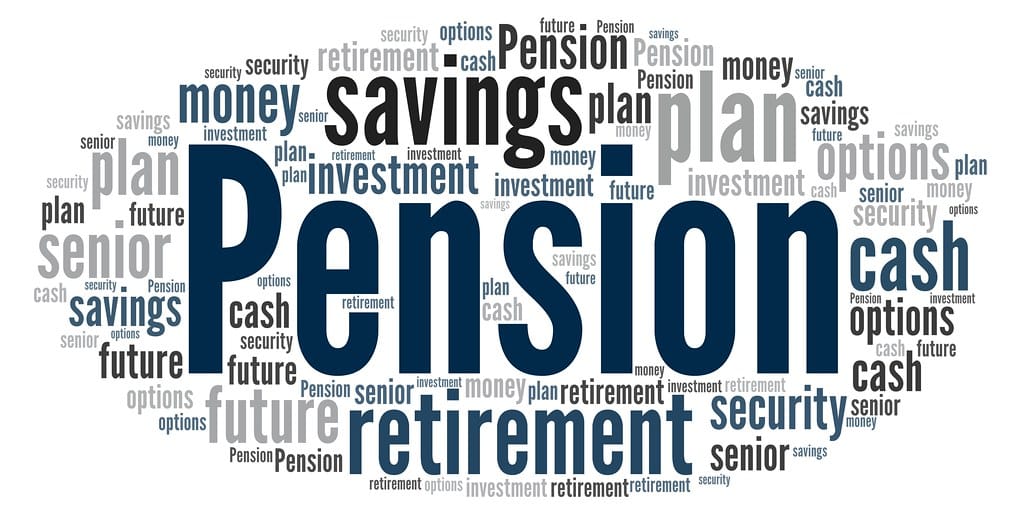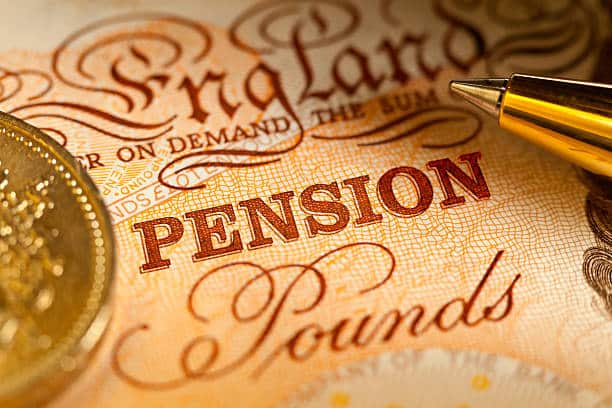What Is A Personal Pension in the UK
If you are looking to invest as an expat or high-net-worth individual, which is what I specialize in, you can email me (advice@adamfayed.com) or use WhatsApp (+44-7393-450-837).
Introduction
Pensions that you create on your own are called personal pensions. They are also sometimes referred to as “money purchase” or “defined contribution” pensions. Typically, you’ll receive a pension based on the amount that was paid in.
Some employers provide workplace pensions in the form of personal pensions.
The pension provider invests the money you contribute to a personal pension in securities (like shares). Your personal pension’s payout will typically depend on:
- how much has already been paid
- the performance of the fund’s investments, which may increase or decrease.
- how you choose to withdraw your funds
What is a Private Retirement Pension?
Private retirement pension providers in the UK allow you to save money for your own or someone else’s retirement.
The government provides a significant tax break for money invested in private pensions.
It’s up to you how much money you put in and where it’s invested, but you can’t withdraw it until you’re 55.
Once you reach a certain age, you are free to spend the money however you see fit.
Pension plans that are not organized by the government are referred to as private retirement pensions. Private pensions can be of two different types:
- Personal pensions
- Workplace pensions
This article discusses a variety of topics, including what a personal pension is, its various types, tax benefits, how to choose a personal pension, the best private pension providers, and the best private retirement pension providers in the UK.
What is a Personal Pension?
Creating your own private pension is known as a personal pension.
Like all pensions, the money you contribute to a personal pension is invested by the pension provider in securities (like stocks, shares, and bonds).
You can choose the specific stocks and shares that make up your pension pot on your own or have your pension provider do it for you, depending on your level of investing expertise.
Up to a certain amount, contributions to pension plans are tax-free. Taxes are due if you:
- Contribute more than £40,000 in a single year to receive your annual allowance; any unused allowance is typically carried over for a maximum of three years.
- Spend more than 100% of your annual income on contributions.
- Exceed your lifetime allowance, which is £1,073,100.
Typically, you can take 25% of your retirement savings as a tax-free lump sum at age 55 (which increases to 57 in 2028).

What is a Group Personal Pension Plan?
A group of individual pension plans put together by an employer for its employees constitutes a group personal pension (GPP). You can use a GPP if you’re enrolled in it to accumulate a personal pension fund that will give you income when you retire.
You will typically automatically enroll in a pension plan as an employee. Although it will be managed by a pension provider that your employer selects, your unique pension contract will be with the provider.
Your pension pot in a GPP grows as a result of employer and employee contributions, investment returns, and tax benefits.
The Benefits of a Personal Pension
A personal pension could be a great way to save for retirement if you don’t have a workplace pension. Additionally, even if you have a workplace pension, adding a personal pension could be a great way to accelerate the growth of your retirement savings.
Personal pensions are particularly advantageous for those who are:
- self-employed
- not eligible for a pension at work, or
- wishing to contribute to a private pension plan in addition to their workplace pension but have a workplace pension.
Types of Personal Pensions
Personal pensions come in two varieties:
Self-invested Personal Pension (SIPP)
You have the freedom to select the specific investments that go into your pension fund with a SIPP. Depending on your pension provider, you may be able to choose from a variety of pre-made portfolios or choose individual investments and manage your portfolio yourself.
In order to ease the burden of selecting individual investments, fund managers will often put together a variety of investments into a ready-made portfolio. You might have access to hundreds of investments with just one pre-made portfolio.
Stakeholder Pension
An individual pension known as a stakeholder pension is one that is subject to minimum requirements set by the government.
These minimal requirements consist of:
- capped charges;
- no-cost transfers;
- minimal contributions that are low;
- contributions that are flexible (you can pause and resume payments as needed); and
- If you don’t want to select investments, there is a default investment fund.
Stakeholder pensions can be especially advantageous if you’re self-employed, on a low income, or unemployed because of their flexibility.
A Lifetime ISA, which is available to adults aged 39 or younger and allows you to save up to £4,000 annually toward your first home or retirement, is another way to contribute to a pension. Your savings will receive a 25% annual bonus from the government, up to a maximum of £1,000 per year.
Personal Pension Tax Relief
Your pension contributions will be increased by the government through tax relief (free money).
The government contributes £20 for every £80 you put into your pension, and if you earn more than average, you may be eligible for an additional £20.
Tax relief can be compared to receiving a refund of the tax you initially paid on your pension contribution at your standard income tax rate of 20%, 40%, or 45%.
Your pension provider is the one who adds this tax break at the basic rate to your pension. Higher rate taxpayers receive a slightly different type of tax relief. You must file a tax return in order to claim the additional rebate if you are a higher rate taxpayer.
Things to Consider when Choosing a Personal Pension
- Before making a decision, compare different pension providers. Visit the websites of each provider you are considering to learn more about their investments and service offerings. Request the document outlining the key features of each pension plan you are thinking about.
- Pay close attention to pension charges. Administrative fees, fund management expenses, transfer fees, and fines for late payments are just a few examples of possible expenses. Check the fees you’ll be required to pay and the due dates.
- Verify your pension provider’s registration with the Financial Conduct Authority (FCA) or, if it’s a stakeholder pension, the Pensions Regulator. All of the pension providers listed on Koody are governed by the FCA or the Pensions Regulator.
- Ask a qualified independent financial adviser for advice if you need clarification or are unsure.
- Be wary of scammers. Anything that seems too good to be true probably is. Also, it’s probably a pension scam if someone demonstrates to you how to take a pension before you turn 55.
Are private pension contributions worthwhile?
A private pension may be an excellent way to increase your pension pot’s savings and give you more income during your retirement years than the State Pension.
Tax benefits from a private pension entail that any funds you contribute to your pension will be increased through tax relief, putting more money in your pocket and lowering your tax burden.
When you retire, these benefits continue. You can withdraw 25% of your pension fund as a lump sum tax-free once you reach retirement age. You will then receive the remaining sum as income and be subject to standard tax rates.
It’s important to remember that not everyone qualifies for the tax advantages provided by private pensions. Speaking with a licensed financial adviser is the best way to determine whether or not a private pension is appropriate for you.
How much can I contribute annually to my pension?
Up to £40,000 per year, 100% of your earnings may be contributed to your pension. Any additional contributions will be taxed.

How much of my pension contributions are tax-free?
Up to a certain amount, private pension contributions are tax-free.
In general, if your pension savings exceed the thresholds mentioned below, you will be required to pay tax:
- The maximum amount of tax relief that can be claimed is 100% of your yearly earnings.
- The annual allowance is currently capped at $40,000 per year.
- You are currently eligible for a lifetime allowance of £1,073,000.
To be eligible for tax relief, pension schemes must be registered with HMRC. If you’re uncertain about whether or not your scheme is registered, you can ask your pension provider.
Can I combine my private pension with my employer’s pension?
You can, indeed. Adding a private pension to your workplace pension may be a great way to accelerate the growth of your retirement savings.
Is it possible to take money out of a private pension?
In most cases, you cannot withdraw money from your private pension before the age of 55 (which rises to 57 in 2028), but there are a few exceptions, such as when you are unable to work due to illness or when your prognosis for survival is less than a year due to a severe illness.
When you reach your State Pension age, you are eligible to receive the State Pension at the earliest possible time. Your state pension eligibility age will probably be 68 if you are currently between the ages of 20 and 39. You must wait to receive your State Pension if you retire before this age.
Can I receive my pension in a single lump sum?
You can, indeed. You can take 25% of your pension pot as a tax-free lump sum when you turn 55 (57 in 2028).
What makes a good contribution to a pension?
A good pension contribution is 10% of your yearly gross income, but the more money you put into your pension, the better.
The majority of financial advisors advise saving at least 10% of your pre-tax income for retirement. 10% may seem high, but keep in mind that it also includes government tax breaks and, if your employer makes contributions, employer contributions.
When determining how much to contribute, keep in mind to account for your anticipated retirement age, your preferred retirement lifestyle, and the typical length of retirement. Use the Money Advice Service’s Pension Calculator to determine the impact of changing your pension contributions at your age on your overall retirement savings.
Pained by financial indecision? Want to invest with Adam?

Adam is an internationally recognised author on financial matters, with over 760.2 million answer views on Quora.com, a widely sold book on Amazon, and a contributor on Forbes.



